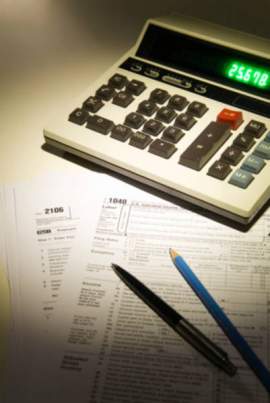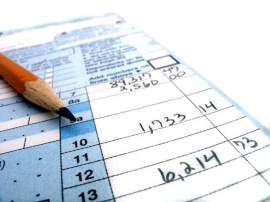
Massachusetts Tax

FULL List to Massachusetts Tax Forms
Individual Income Tax Forms
Form 1 Massachusetts Resident Income Tax Return
Form 1-NR/PY Mass. Nonresident/Part-Year Resident Tax Return
Corporate Income Tax Forms
Form 355 Business or Manufacturing Corporation Excise Return
Form 355S S Corporation Excise Return
Form 355SBC Small Business Corporation Excise Return
Sales Tax Forms
Form ST-10 Business Use Tax Return
Form ST-11 Individual Use Tax Return
Form St-9Q Quarterly Sales and Use Tax Return
Form ST-9A Annual Sales and Use Tax Return
Form ST-9SM Monthly Sales and Use Tax Return
Property Tax Forms
Form 128 Application for Abatement of Real or Personal Property Tax
Form 96 Application for Statutory Exemption
Form 2011 Form of List Return of Personal Property
Property Taxes
In general, all property located within the state of Massachusetts is subject to taxes. However, exemptions do exist that are set forth by individual state statutes. Detailed examination as well as timely acquisition of taxes is overseen and facilitated by each local "assessor." Massachusetts tax is instituted according to the following classifications of property being "residential, open space, commercial, industrial, or personal." Each year Massachusetts tax terms include that of payments being expected to have been paid in two parts.
The first payment falls on the first of November or rather in the 30 days allotted following Massachusetts tax forms being mailed out. The subsequent installment, then, would occur on the first of May for the next "assessment year." Despite these norms and specifications attached to Massachusetts tax, a multitude of exemptions do also exist, which we will now familiarize ourselves with.
To begin with, tax exemptions exist with the purpose of allowing certain individuals to be discharged from responsibility for payment of taxes, whether in full or by a certain portion specified. With this in mind, there are four distinct groups or populations that are legally exempt from Massachusetts tax in accordance with property. They include blind individuals, the elderly, surviving spouses or children, and veterans. For each group, applications must be filed each calendar year with the appropriate assessors of the municipality in which their property resides.
This must occur prior to or by the date of December 15th, or within 3 months following the conveyance of Massachusetts tax forms. Keep in mind that such an application does not relieve an individual from regularly scheduled tax payments, however. Relief will not occur until their applications have been, thereafter, approved. Appropriate documentation must also be relinquished depending upon what local assessors require.
Blind Persons
When concerning visually deficient individuals, eligibility requirements consist of "proof of blindness" as well as "ownership and domicile." Proof concerning individual blindness consists of certification authorized and given by the "Commission for the Blind," which authenticate and vouch for their condition by law. This is necessary for each year of reapplication as well.
If, however, one is unable to obtain such certification in the first year, they may provide written proof from a creditable physician who may certify the condition of blindness in accordance with the Commission. In terms of domicile, the blind individual must have taken residence in their property as of the first of July of that current Massachusetts tax year. In relations to ownership, one must have established a stake of at least $5,000 in the aforementioned property. Depending upon clauses accepted by their locale, exemption amounts may range from four to five hundred dollars.
The Elderly
When concerning elderly individuals, documentation required by local assessor may be comprised of birth certificates, proof of domicile, and previous income tax returns, but are not necessarily limited to them. In terms of immediate eligibility, the following must be satisfied: age, domicile/ownership, yearly income, and assets. An elderly individual must be at least 70 years of age or be a "joint-owner" of property with a spouse who's of that age. This must have been viable as of the first of July of that Massachusetts tax year.
They must have owned and resided in the property as of the same prescribed date as well as must have maintained a stake of at least $4,000 in it. Eligibility amounts also vary according to specifications attached to each clause. Marriage versus status as single also incurs varying specifications. For instance, according to "clause 41," gross monetary considerations aside from social security must be below the plateau of $6,000 if single, and $7,000 if married. "Whole estate" values must also abide by certain specifications. In relation to clauses, exemption amounts equal that of $500 for each.
Surviving Spouses/Children
In reference to surviving spouses and/or children, documentation required by assessors mirrors that of what is expected of elderly applicants. Eligibility requirements consist of the individual needing to have been labeled within the status of being a surviving spouse/child who is the sole owner of property as of July 1 of that Massachusetts tax year. In order to be within such specifications of ownership, one must have a stake of at least $2,000 in the property or must be in agreement with any one or more clause specifications. An example would be that of "Clause 17," which states that, in relation to whole estate, it not exceed $20,000. Exemptions for this individual group are that of $175.
Veterans
As the final population eligible for Massachusetts property tax exemption, veterans must provide assessors with documentation such as "certificate of service" referencing disability from the "Veterans Administration" in addition to the proof of ownership and domicile. Veterans must satisfy resident requirements comprised of them having lived in the state for six months prior to military service or having lived in the state for at least five years altogether.
One must have resided on the property as of July first of that tax year in order to satisfy the requirement of domicile while ownership consists of them their stake in the property existing within the confines of two to ten thousand dollars. In terms of exemption in connection to the various clauses, they range from a $1,000 to $2,500. An additional specification unique to veterans is that of "total exemption" due to condition as a paraplegic. In such a case, one must have obtained appropriate certification.
"Intangible personal property taxes" are also a part of Massachusetts law. In such a case, the state requires compensation of 5.3 percent of any profits garnered from transactions concerning "capital assets" maintained for more than a year. This must have occurred on or following the first of May, 2002. Collection of 12 percent tax on interest for those transactions for a year or less.
Sales Taxes
Massachusetts tax also reigns over such endeavors as the purchasing of items. Sales tax is a percentage that the state tacks onto the original price of items. An example would be that of 6.25%. All vendors within the state must abide by such specifications of Massachusetts tax law. There are responsible for registration with the DOR, collection of the sales taxes, and the conveyance of them to the DOR accompanied by tax returns. These qualifications are expected of "out-of-state vendors" as well who may be vending in the state at any time.
Many items are, however, also exempt from sales taxes. Examples include clothing totaling less than $175, magazines, and tickets to events. When encountering other goods such as for the home or other apparel, multiple variations occur where aprons may be exempt but shower caps may not. Due to such a complex classification of both taxable and tax-exempt items, it would be wise to inquire prior to going forth with a purchase if concerned with such economic specifications.
NEXT: Michigan State Tax




















